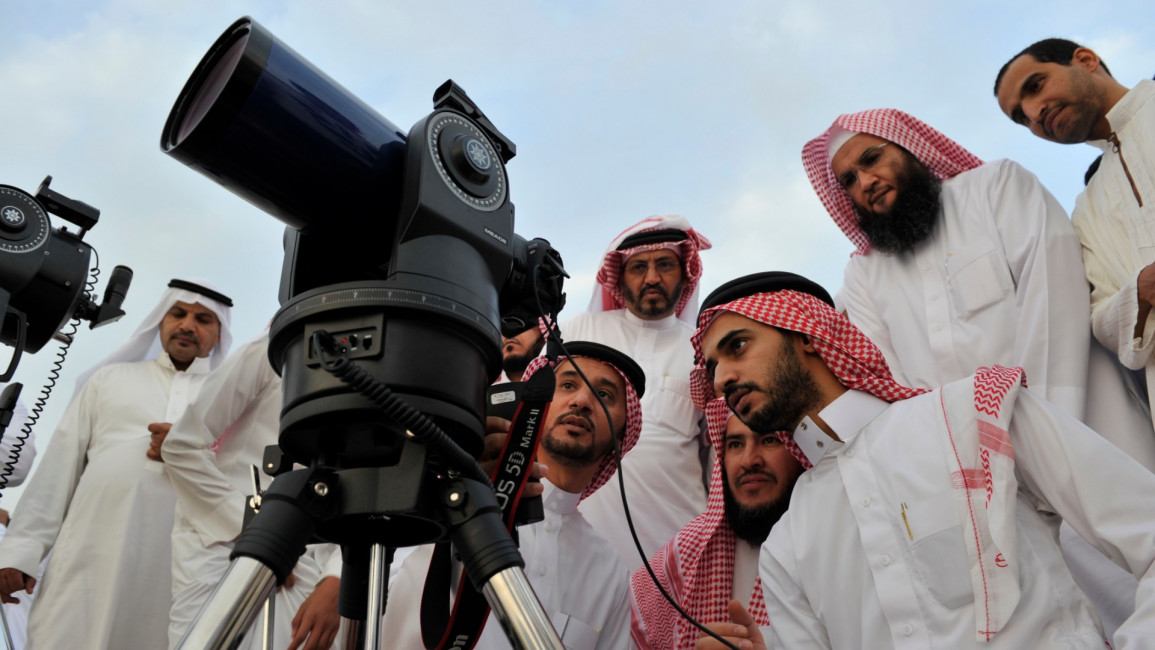Saudi Arabia to sight Ramadan crescent on Thursday as Muslims prepare for fasting during coronavirus
A positive sighting of the moon on Thursday evening would mean the beginning of the Ramadan fast period on Friday for Saudi Arabia.
"Anyone who sights the moon through a telescope or the naked eye should inform the nearest court," the court said in a statement.
This year's call for Ramadan moonsightings to begin comes as Muslims around the world prepare to fast the holy month amid heavy restrictions due to the coronavirus pandemic.
Saudi authorities on Monday extended the suspension of prayers in the Grand Mosque of Mecca and the Prophet's Mosque in Medina, ruling out congregational prayers at Islam's two holiest sites.
The move followed a fatwa by Saudi Grand Mufti Sheikh Abdul Aziz Al-Sheikh, who said that Ramadan and Eid prayers should be performed at home if the Covid-19 outbreak continues.
|
||
Saudi Arabia's announcement for the moonsighting to take place on Thursday applies only to the kingdom, however, it is likely that millions of Muslims around the world will follow Riyadh's Ramadan announcement.
Riyadh's sighting of the moon has long been a subject of controversy, particularly in countries where there is no centralised Islamic authority.
Critics of the kingdom's moonsighting methods say Muslims outside of Saudi Arabia should rely on local moonsightings, as Riyadh has allegedly announced the wrong date for Ramadan on several occasions.
"Saudi Arabia only uses moon sightings for the four religious months of the Muslim calender. For the rest of the year, the Saudi Umm al-Qura calendar is based on calculations, but that often means that their calendar is one day ahead of those based on physical sightings of the moon," Imad Ahmed of the New Crescent Society, a UK-based moonsighting group, told The New Arab.
"In a way, they will be forced to say they will have sighted the moon on Thursday - even though the moon will be scientifically impossible to see - because if they don't, it will mean that the month of Shaaban will be 31 days, which it can't be. This would be hugely embarrassing for them."
Follow us on Facebook, Twitter and Instagram to stay connected



